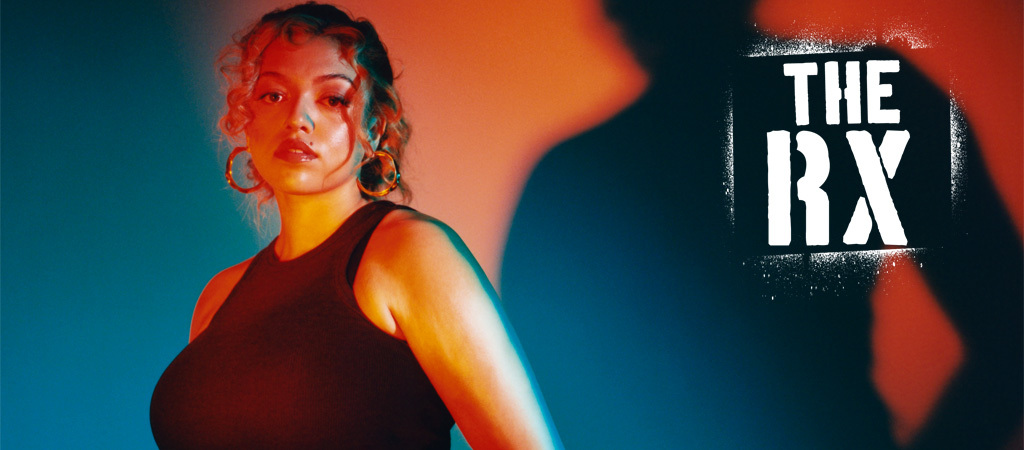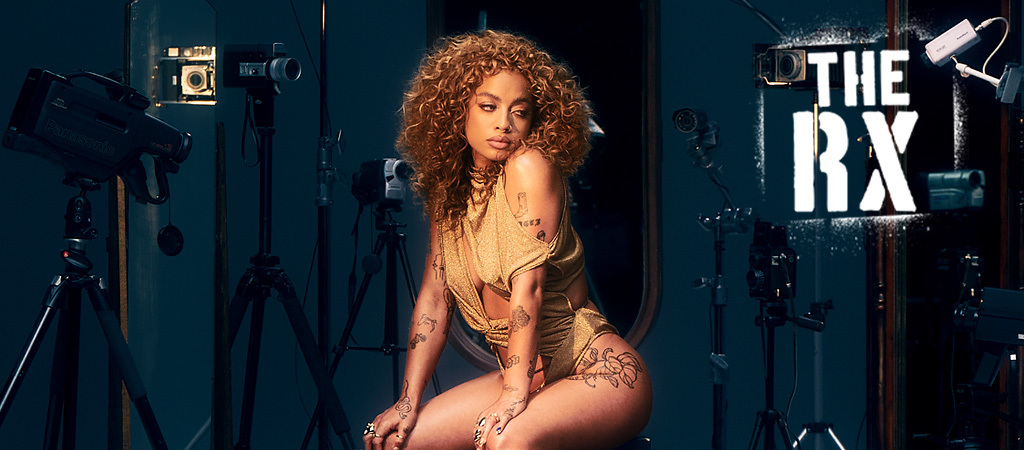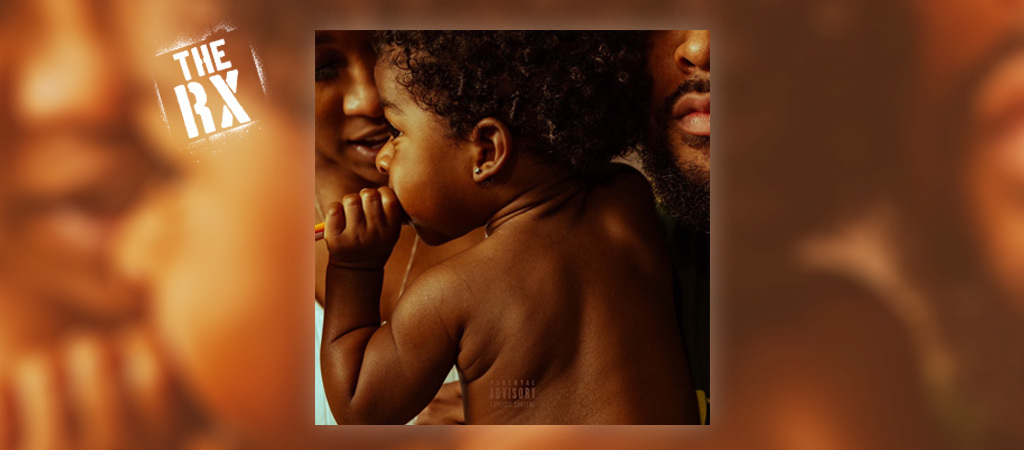
The RX is Uproxx Music’s stamp of approval for the best albums, songs, and music stories throughout the year. Inclusion in this category is the highest distinction we can bestow, and signals the most important music being released throughout the year. The RX is the music you need, right now.
For someone whose debut album is titled Love And Compromise, there isn’t much compromising on Mahalia’s second album IRL (In Real Life). The British singer laughs as I make note of this during our Zoom call as she heads to LAX for a flight back home after a month in the States.
It’s been four years since Mahalia released Love And Compromise, and since that album’s release, the singer and the rest of the world have gone through a lot. In credit to things like the obvious effects of the pandemic as well as more personal experiences, Mahalia, now 25 years old, is far removed from the 21-year-old woman who released that breakthrough collection.
Growing up is just one of the things that allowed her to make IRL. “Therapy got me here for sure,” she adds. “Therapy was probably the biggest catalyst for me. I think it was the one thing that really allowed me to understand myself. That’s why making this album was so interesting because I really felt like I was reflecting the whole time.”
Throughout the 13 songs that make up IRL, Mahalia couldn’t be more aware of herself and her surroundings and both the good and bad within them. She’s so deeply in love with Stormzy on “November” that she fears missing a moment of this romance by blinking or dozing off into sleep. “Isn’t It Strange” highlights the contradicting moments in her behavior but she blankets it with nonchalance as to do nothing more than acknowledge its existence. It’s a level of honesty and bluntness that emphasizes the “real” aspect of the album title. “I think that’s why this album maybe means so much to me because I think it actually does feel like diary entries,” she says.
Elsewhere, we meet the new Mahalia, the one who refuses to compromise for the things she wants. The one who lays down “Terms And Conditions” for love and warns that a potential lover will have to endure a vetting process conducted by her closest girls. The same who one found the courage to say “It’s Not Me, It’s You” to a man who made her wrongly believe that she was insufficient for a relationship. Despite this, Mahalia admits that often slips back to her old ways. “Even sometimes, now I find myself compromising on things and going, ‘what the f*ck am I doing?” Mahalia notes. “Like this is not what I’ve agreed with myself.”
Mahalia doesn’t attempt to hide the moments she goes against her own terms and conditions on IRL, and it’s that authenticity that adds to the album. After four years without an album, the British singer could have presented herself as a flawless woman who learned from her past to conquer anything her future threw her way. Instead, we get the very real back-and-forth moments of laying firm rules on “Terms And Conditions” all to hopefully bend them on “In My Head” with Joyce Wrice. “Wassup” with Kojey Radical celebrates freedom from an insufficient lover with a fun night on the town all for “Lose Lose” to follow and present Mahalia’s reluctance to put herself first and end a relationship that is riddled with too many problems. Through these instances, you may think that Mahalia is a bit fearful of change, but it was quite the opposite for her.
“My partner and I have now been together for coming up on three years,” she says. “Before that, I only made it to about 10 or 11 months, three times. When I got to that point with my partner, I remember having an internal freakout because I was like I don’t think I can go past that point or I’m feeling like I need to change and feeling like I need to alter something so that I can grow artistically.”
That feeling didn’t last too long as Mahalia admits that she’s “very scared of change now.” She is currently working towards splitting her time between homes in New York and London, a transition that she admits “freaked” her out at its start. “As you get older and figure out your comfort and the things that make you bounce, I think you don’t really want to change that because it’s taken you 25 years to find that sweet spot.”
This relationship has also allowed Mahalia, for the first time in her career, to create an album from the perspective of someone in a stable relationship. Staying on the topic of change, it’s been quite an adjustment for her to write from this new point of view. “I’m so used to just writing about the guys that do the sh*tty things and the guys that leave,” she says. “This was the time to be able to talk about all the intricacies of long-term relationships. They are just as crazy as being single and dating and being in the streets.” It’s a change that Mahalia not only fully embraced, but enjoyed as well. “The process itself was really, genuinely fun. Like, just really fun,” she admits. “I laughed [and] cried a lot while I was writing and creating, and I think that’s maybe why I’m so proud of it.”
During an interview with Evening Standard earlier this year, Mahalia admitted that she “probably wouldn’t have written this same album” if not for the pandemic. It’s an unsurprising note from the singer for a few reasons. First, the pandemic change a lot of things in a lot of areas for people all over the world, changes that were temporary and others that were permanent. Secondly, Mahalia’s almost three-year relationship means that it began in the heart of the pandemic, so who knows how it would’ve existed, if at all, if not for this time that forced the world to come to a standstill. These points aside, Mahalia also credits the “post”-pandemic moments for helping her find a direction for her sophomore album.
“Through the pandemic, we obviously couldn’t go into studios and stuff,” she recalls. “So when, when that time was over, I was working with loads of different people. I wasn’t really taking the time to sit and think, ‘This is my second album, what do I want to say?’ So after that immediate rush of being outside again, I decided that I kind of wanted that. I missed that feeling, I missed the four walls, I miss seeing the same people every single day.”
What came out of that was the decision to work with a small circle of three people to create IRL, and through that, comes an album that she feels is more cohesive than her debut. “[Without that], I would have just been going in the studio with everyone and just making a bunch of music which is kind of how Love & Compromise felt to me,” she admits. “I love that record and I always will because it was my first, but it definitely felt disjointed to me because I wasn’t learning with people and I wasn’t creating with people in that way. I was just creating to create.”
So what is it that Mahalia wants to say on IRL? Through all the changes she’s experienced in her life (multiple managers, boyfriends, and friends), Mahalia wanted to showcase her newfound independence and the benefits that come from it. “I really wanted people to get a sense of independence from this record,” she says. “Even though there are moments when I talk about relationships and people that I do depend on, I think you can really hear that I am depending on myself to get through this life and human experience.” She later adds, “I’m in that phase of my life where I’m like, I can do this sh*t on my own.”
Compromise is a thing of the past for Mahalia. Now, she’s putting herself first, both in her music and in real life.
IRL is out now via Atlantic Records. Find out more information about it here.




 , Janelle Monáe’s The Age Of Pleasure maintains the musician’s crusade of using her work to allow any and all “dirty computers” to remember that there is indeed a place for them in the world, and on the dancefloor.
, Janelle Monáe’s The Age Of Pleasure maintains the musician’s crusade of using her work to allow any and all “dirty computers” to remember that there is indeed a place for them in the world, and on the dancefloor. 




